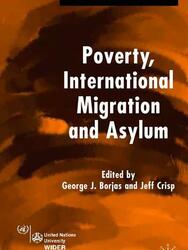Book Chapter
Development Cycles, Political Regimes and International Migration
Argentina in the Twentieth Century
At the turn of the twentieth century, a large number of Europeans, mostly from Italy and Spain, left their homelands and headed to the distant shores of Argentina in response to the good economic opportunities, fertile land and hopes for a better future that were to be found there. At the time, Argentina was one of the most vibrant world economies. Between 1870 and 1930, around seven million people migrated from Europe to Argentina, although nearly three million returned at some different point during those years. Also foreign capital responded to the opportunities offered by Argentina, and British financial institutions funded an important part of the construction of national infrastructure needed to support growth. In contrast, European migration to Argentina virtually stopped in the 1950s, and in the next 30 years or so the country become a net exporter of professionals who were fleeing economic decline, poor opportunities and authoritarian regimes. Moreover, during this period, financial capital steadily left Argentina looking for safer places. Nowadays, and in contrary to the flow of people a century ago, Argentineans are leaving in large numbers to Spain, Italy and other destinations. Emigration this time is associated with the collapse of the country’s currency experiment of the 1990s which left a legacy of massive output decline, high unemployment, financial crisis and lost hopes. This paper investigates the main patterns of international migration to and from Argentina in the twentieth century by examining the effects of relative income differentials, persistence effects, economic cycles and political regimes.
 Join the network
Join the network